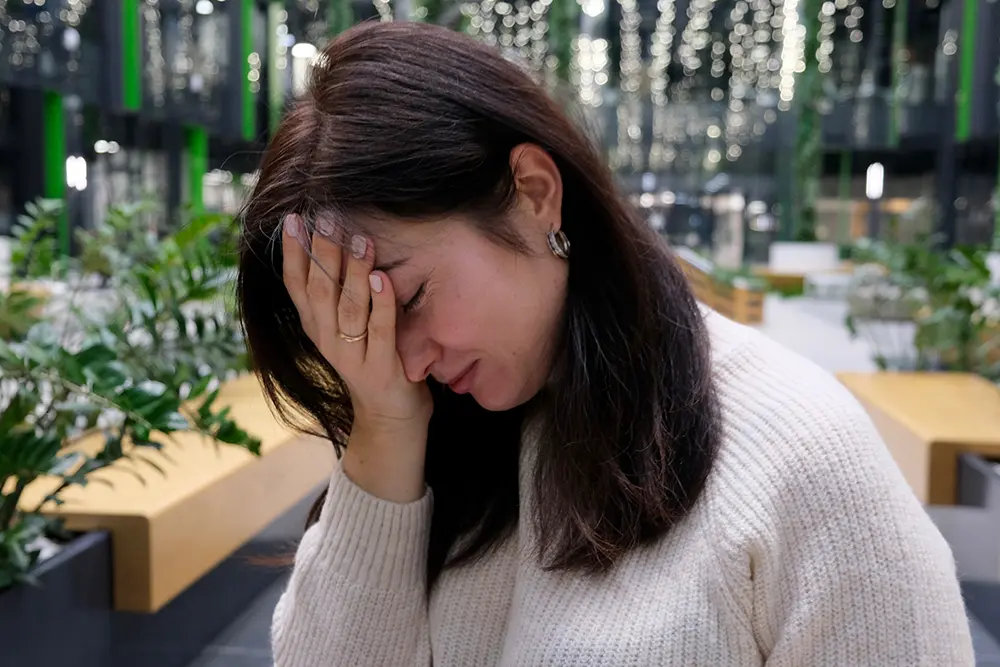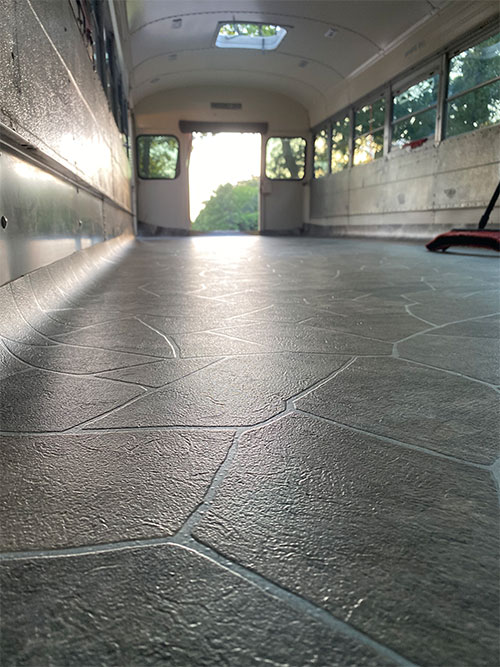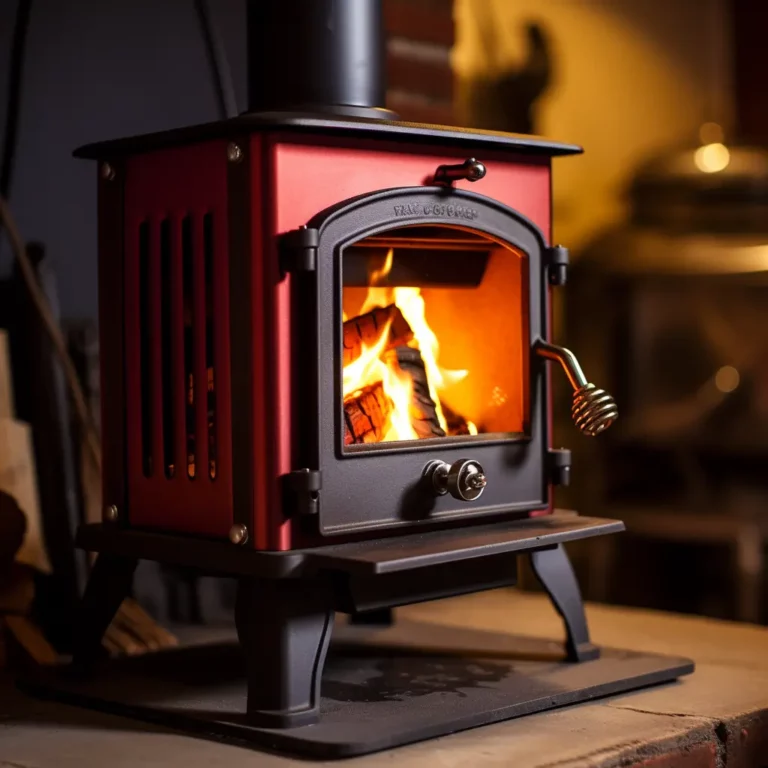Nomadic Adventures: Balancing Mental Health and the Thrill of the Road
The “nomadic lifestyle” refers to a way of life that involves traveling from place to place. Often times with no fixed address or permanent home. Nomads, like me, are individuals who prioritize experiences over possessions. And are willing to give up some of the comforts of a traditional home in exchange for the freedom and adventure of the open road. This type of lifestyle can take many forms, from backpacking and camping to living in a van or RV full-time. Nomads could work remotely, freelance, or rely on odd jobs and seasonal work to sustain their lifestyle. Most of my travels I built websites and did graphic design for small business. While nomadic living can offer many benefits, such as the ability to explore new places and cultures, it also presents unique challenges, particularly when it comes to maintaining mental health and wellbeing on the road.
Living a nomadic lifestyle can have both positive and negative effects on mental health and wellbeing. On the positive side, the freedom and adventure of a nomadic lifestyle can lead to increased feelings of independence, creativity, and personal growth. Exposure to new cultures, environments, and experiences can broaden perspectives and enhance your sense of purpose and meaning. However, the nomadic lifestyle can also bring challenges such as loneliness, instability, and even financial stress. Maintaining social connections, building a support system, and finding routines and structure can all be difficult when living on the road. Finding ways to manage these challenges and prioritize mental health is crucial for those pursuing a nomadic lifestyle.
The Positive Effects of Living the Nomadic Lifestyle on Your Mental Health
Living a nomadic lifestyle can bring a sense of freedom and independence that can positively impact your mental health and wellbeing. Without the constraints of a traditional 9-to-5 job or the responsibilities of a fixed home, nomads have the freedom to explore and experience the world on their own terms. This can lead to a greater sense of control over one’s life and decisions. Which can boost your self-esteem and self-worth. The flexibility of a nomadic lifestyle can also allow for more opportunities for personal growth and self-discovery. As you are constantly exposed to new situations and challenges that require adaptation and resilience. This sense of empowerment and personal growth can enhance overall wellbeing. And may even lead to increased creativity and inspiration as individuals explore new ways of thinking and living. While on the road, I’ve gotten some of my most creative and inspiring moments. These moments have helped shape my attitude, my art and my other projects.
Exposure to New Experiences
As a nomad, I have the privilege of being exposed to new experiences and cultures on a regular basis, and I’ve found that this exposure has had a positive impact on my mental health and wellbeing. When I travel and live in different places, I’m constantly learning about new ways of life, cultures, and perspectives. This exposure has broadened my horizons and expanded my understanding of the world. It has also challenged my preconceived notions and biases, leading to greater empathy and compassion towards others. These experiences have enriched my life and enhanced my sense of purpose and meaning. Additionally, exposure to new experiences and cultures has led to personal growth and self-discovery. As I navigate unfamiliar territories and customs, I learn new skills and build resilience, which has boosted my self-confidence and self-esteem. Overall, exposure to new experiences and cultures provides me with a sense of adventure and excitement that positively impacts my mental health and wellbeing.

Personal Growth & Self Discovery
As a nomad, I have the privilege of being exposed to new experiences and cultures on a regular basis, and I’ve found that this exposure has had a positive impact on my mental health and wellbeing. When I travel and live in different places, I’m constantly learning about new ways of life, cultures, and perspectives. This exposure has broadened my horizons and expanded my understanding of the world. It has also challenged my preconceived notions and biases, leading to greater empathy and compassion towards others.
These experiences have enriched my life and enhanced my sense of purpose and meaning. Additionally, exposure to new experiences and cultures has led to personal growth and self-discovery. As I navigate unfamiliar territories and customs, I learn new skills and build resilience, which has boosted my self-confidence and self-esteem. Overall, exposure to new experiences provides me with a sense of adventure and excitement that positively impacts my mental health and wellbeing.
I’ve lived in old school busses on the cliff sides of Northern California. Swam with wild baby whales on the coast of the Pacific Ocean. I’ve played music with random people in random places. I’ve had so many experiences while I’ve been traveling and each one has given me a new vision on life itself.
Being Resilient & Adaptive
Living a nomadic lifestyle has challenged me in many ways. But it has also provided me with ample opportunities to build resilience and adaptability. Like when I accidentally joined a cult in Northern California… When you’re constantly on the move, you’re forced to adapt to new environments, cultures, and situations on a regular basis. This can be both exciting and overwhelming at the same time. At first, I found myself struggling to adjust to the constant change and instability. But as time went on, I developed skills that allowed me to adapt more easily.
I learned how to be flexible, how to problem-solve, and how to find creative solutions to unexpected challenges. These skills have not only helped me in my travels, but they’ve also translated into other areas of my life. I’ve become more confident in my ability to handle uncertainty and change, and I’ve learned to embrace the unknown with curiosity and openness. Building resilience and adaptability has been a valuable and rewarding aspect of my nomadic lifestyle. And it’s something I continue to prioritize and cultivate every day. I’ve traveled while living full time in a Prius, a vintage RV and now a Skoolie. Each dwelling has it’s own challenges that have helped me overcome problems as they arise.
The Negative Effects of the Nomadic Lifestyle on Mental Health
While living a nomadic lifestyle can have many positive benefits. Such as, increased freedom and exposure to new experiences and cultures. It’s also important to acknowledge the potential negative effects it can have on mental health. The nomadic lifestyle can be unpredictable and unstable, which can lead to feelings of stress, anxiety, and loneliness. Nomads often lack a stable support system and social network. This can lead to isolation and difficulty in building long-term relationships. Additionally, the financial stresses of a nomadic lifestyle, such as finding consistent work or managing travel expenses, can also take a toll on mental health. It’s important to address these potential negative effects and find ways to prioritize mental health and wellbeing while living a nomadic lifestyle.

Isolation & Loneliness
One of the biggest challenges I’ve had while living a nomadic lifestyle is the potential for isolation and loneliness. When you’re constantly on the move, it can be difficult to build long-term relationships and maintain a stable support system. This can lead to feelings of loneliness, which can have negative impacts on mental health. Many nomads have reported feeling socially isolated and struggling to build meaningful connections. Which can contribute to a sense of disconnection and loss of purpose. It’s important to acknowledge these potential negative effects and find ways to prioritize mental health and build a support system. Whether through online communities, local networks, or cultivating relationships with fellow nomads.
Loneliness is especially difficult when you’re a solo traveler. When you are in a relationship or have a friend with you when you’re traveling, it can really help you cope with loneliness. I’ve had to deal with being alone for days on end without speaking to another person. Not that I suggest doing this at all, it was a learning experience for me. It was an empowering thing to be connected with nature more than society. But it was a challenging and rewarding experience.
Lack of Stability & Routine
Another potential negative effect of living a nomadic lifestyle is the lack of stability and routine. When you’re constantly on the move, it can be difficult to establish a consistent daily routine and maintain a sense of stability. Especially if you don’t have a remote job with a schedule. This lack of structure can contribute to feelings of stress and anxiety, as well as difficulty in maintaining healthy habits and routines.
For example, it can be challenging to find consistent access to healthy food and exercise, or to establish a regular sleep schedule when constantly changing time zones. While the freedom and flexibility of a nomadic lifestyle can be exciting. It’s important to find ways to establish a sense of routine and stability in order to prioritize mental health and wellbeing. This may include practices such as setting a consistent sleep schedule, prioritizing healthy habits and self-care, and finding work that allows for more stability and predictability.
Financial Stress
One of the major challenges of living a nomadic lifestyle is the financial stress that can come with it. Travel and living expenses can quickly add up. And finding consistent work can be difficult when constantly on the move. This financial instability can contribute to feelings of stress and anxiety, as well as a sense of uncertainty about the future. Many nomads rely on savings or freelance work, which can create a sense of insecurity about future financial stability. Additionally, unexpected expenses such as medical emergencies or lost or stolen belongings can further add to the financial stress of a nomadic lifestyle. It’s important for nomads to carefully plan and budget for travel expenses, as well as finding creative ways to earn income that allow for more financial stability. This may include freelance work, remote employment, or working in exchange for accommodations or experiences. I saved a lot of money on lodging and food while I lived on WWOOF farms. Prioritizing financial planning and stability can help to alleviate some of the stress and anxiety that can come with the nomadic lifestyle.

Burnout & Fatigue
Another negative effect of living a nomadic lifestyle is the risk of experiencing fatigue and burnout. Constantly traveling and exploring new places can be exciting, but it can also be physically and emotionally exhausting. The stress of constantly being on the move, adapting to new environments and cultures. And dealing with the logistics of travel can all take a toll on mental and physical health. Additionally, the pressure to constantly be experiencing new things and documenting them for social media can also contribute to burnout. Not all nomads are constantly on social media, but it can become an addition for a lot of people.
Many nomads I’ve talked to express a feeling of exhaust and being overwhelmed. And struggling to find time for rest and self-care. It’s important for nomads to prioritize self-care and rest in order to avoid burnout, which may include taking breaks from travel. Setting boundaries around work and social media use, and finding ways to prioritize relaxation and downtime too. Recognizing the signs of fatigue and burnout and taking steps to address them can help to maintain mental and physical health while living a nomadic lifestyle.
Difficulty Maintaining Relationships
Living a nomadic lifestyle can also present challenges in maintaining relationships. Constantly traveling and being on the move can make it difficult to establish and maintain close relationships with family and friends. Long distance communication and the time differences can create barriers to staying in touch, and it can be challenging to make plans to visit or meet up with loved ones who are in one place. Additionally, the transient nature of the nomadic lifestyle can make it difficult to form and maintain romantic relationships. As the frequent moves and unpredictability of travel can create obstacles to building a stable partnership.
While some nomads may choose to prioritize their solo travels over relationships, others may struggle with feelings of loneliness and isolation without a strong support system. It’s important for nomads to find ways to maintain connections with loved ones. Whether through regular communication or planned visits, as well as finding ways to build new relationships and support networks while on the road. Building and maintaining relationships takes effort. But it can be a key source of support and wellbeing for those living a nomadic lifestyle.
Coping Strategies for Maintaining Mental Stability on the Road
Living a nomadic lifestyle can be challenging, but there are strategies and tools that can help maintain mental health and wellbeing while on the road. Prioritizing self-care and creating routines can help establish a sense of stability and normalcy amidst the constant change and uncertainty of travel. This can include finding time for physical activity, meditation or mindfulness practices, and regular sleep and meal schedules. Staying connected with loved ones and building a support network of other travelers or expats can also be helpful for combatting loneliness and isolation.
It’s also important to take breaks from travel and prioritize downtime, whether that means staying in one place for an extended period of time or taking shorter breaks between trips. This strategy has helped my mental health immensely after years of full time travel. Seeking professional support, such as therapy or counseling, can also be helpful for managing mental health concerns while living a nomadic lifestyle. Additionally, planning and budgeting for travel expenses and building a sustainable income source can help alleviate financial stress and anxiety. Overall, taking a proactive approach to self-care and seeking out support can help maintain mental health and wellbeing while living a nomadic lifestyle.

Prioritizing Self-Care While Traveling
Prioritizing self-care practices is essential for maintaining mental health and wellbeing while living a nomadic lifestyle. Engaging in regular physical activity, such as yoga or hiking, can not only improve physical health, but can also help reduce stress and anxiety. Meditation and mindfulness practices can also be helpful for managing mental health concerns. It also helps you cultivate a sense of inner peace and calm amidst the chaos of travel. Seeking out professional support, such as therapy or counseling, can also be beneficial for managing mental health concerns. And it provides a space for processing emotions and experiences while on the road. It’s important for nomads to identify the self-care practices that work best for them and make them a priority. Even amidst the demands of travel and work. By investing time and energy into self-care, nomads can build resilience. An learn coping skills for managing the unique challenges of living a nomadic lifestyle. It’s easier than ever to get mental health help while living on the road. There are many services that have you video call therapists and counselors.
Establishing Routines & Structure
Establishing routines and structure within a nomadic lifestyle can be challenging. But it can also be essential for maintaining mental health and wellbeing. Creating a sense of stability and predictability amidst the constant change and unpredictability of travel is important. It can help reduce feelings of anxiety and uncertainty. This can include setting regular sleep and meal schedules. Scheduling time for self-care practices, and creating a work or productivity schedule. It can also be helpful to establish a home base or a few regular travel destinations. And to provide a sense of familiarity and comfort amidst the newness of travel. While the spontaneity of travel can be exciting, having a sense of structure and routine can help create a sense of balance and stability. By finding ways to establish routines and structure within their travels, nomads can better manage the challenges. And the uncertainties of the road while maintaining their mental health and wellbeing.
Building a Community While Traveling
Building community and social connections while living a nomadic lifestyle can be challenging, but it’s important for maintaining mental health and wellbeing. Social support can provide a sense of belonging, comfort, and emotional support amidst the isolation and loneliness that can come with travel. One way to build community is by attending events and gatherings for travelers and expats. Such as meetups or language exchanges, check local libraries for event information.
Of course, social media can also be a powerful tool for connecting with other travelers and building a sense of community online. Additionally, volunteering or participating in local activities or projects can provide opportunities for building connections with locals and experiencing the culture in a deeper way. By actively seeking out opportunities for social connection, nomads can combat feelings of loneliness and isolation and build a support network on the road.
Taking Breaks to Prevent Burnout
Taking breaks and allowing for downtime is crucial for preventing burnout when living a nomadic lifestyle. It can be easy to get caught up in the excitement of travel and adventure. And you can forget to prioritize rest and relaxation over new experiences. However, constantly being on the go can lead to physical and emotional exhaustion, making it difficult to enjoy the journey. It’s important for nomads to give themselves permission to take breaks and slow down when needed. This can mean taking a day off from work or travel to relax, read a book, or explore a new destination at a leisurely pace. It can also mean intentionally building downtime into a travel itinerary. Rather than trying to pack too many activities into a short period of time. By allowing for breaks and downtime, nomads can prevent burnout, maintain their energy levels. And then you can fully enjoy the journey of living a nomadic lifestyle.
Maintaining Mental Health While Living The Nomadic Lifestyle
Living a nomadic lifestyle can have both positive and negative effects on mental health and wellbeing. On the one hand, the freedom, autonomy, and exposure to new experiences can be exciting and invigorating. On the other hand, the lack of stability and routine, financial stress, isolation and loneliness, and difficulty maintaining relationships can all take a toll on mental health.
To maintain mental health and wellbeing while living a nomadic lifestyle, it’s important for nomads to prioritize self-care practices, establish routines and structure, build community and social connections, and take breaks and allow for downtime. Self-care practices such as exercise, meditation, and therapy can help nomads manage stress and maintain a sense of balance. Establishing routines and structure can provide a sense of stability amidst the constant change of travel. Building community and social connections can combat feelings of loneliness and isolation. Finally, taking breaks and allowing for downtime is crucial for preventing burnout.
While living a nomadic lifestyle can come with unique challenges, it’s possible to maintain mental health and wellbeing with the right strategies and tools. By prioritizing self-care practices, establishing routines and structure, building community and social connections, and taking breaks and allowing for downtime, nomads can fully enjoy the journey of living a nomadic lifestyle.









